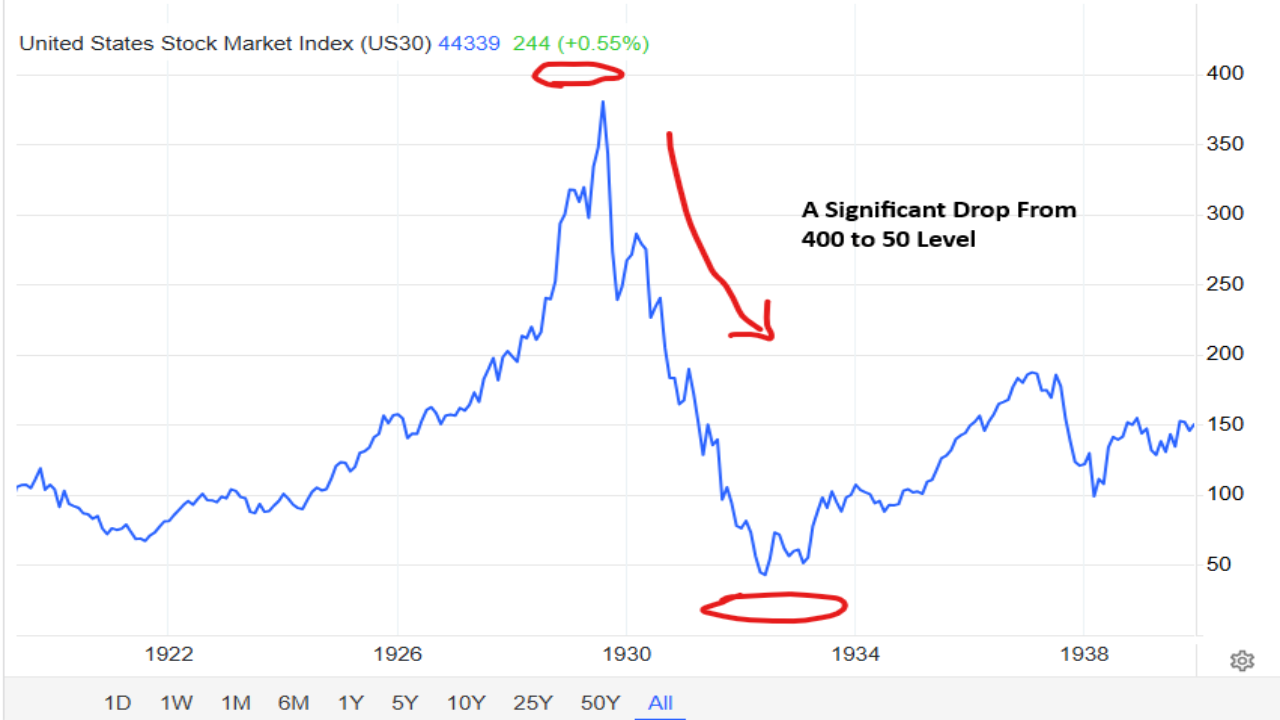As artificial intelligence (AI), specifically generative AI (GenAI), continues to disrupt industries across the globe, many investors see the potential rewards and want a list of AI stocks worth investing in. If you're wondering how to invest in AI stocks for maximum returns in 2025, you've come to the right place.
This article will show you how to pick AI stocks and use AI stock tools to assist you with deciding what AI stocks to buy. Whether you're an experienced investor or just starting out, this guide can give you some ideas for investing in stocks in 2025 and help you make more informed investment decisions.
Why Invest in AI Stocks?
Global management consulting firm McKinsey believes that GenAI can create significant value for the global economy by improving productivity, driving innovation, and changing the competitive landscape. According to McKinsey research, GenAI could contribute up to $7.9 trillion annually to the global economy.

This tremendous growth has made AI-related stocks a prime investment opportunity for investors to buy. However, it is not easy for retail investors to identify and pick a list of the best AI stocks among the heaps of AI stocks available, especially for investors seeking maximum returns.
Identifying AI Stocks?
Now that we all know the importance of AI stocks, how do you invest in AI stocks to get the most return in 2025 and as an investor what platforms can I use to research these stocks? Here are a few key strategies to get you started.
In general, AI stocks selected by investors are roughly divided into two categories, one is the shares of companies related to AI products, and the other is the shares of companies affected by AI technology.

First, consider the stocks of companies linked to AI products. On the one hand, in the field of artificial intelligence chip manufacturing, there are several large companies that dominate, such as Nvidia, AMD, and Intel. On the other hand, in the field of artificial intelligence products, technology giants such as Alphabet, Microsoft and Cerebras have been deeply engaged in AI research for many years, and have released powerful AI products.
Second, we need to understand which industries AI technology will have a greater impact on, so that we can select stocks based on their future financial effects after deploying AI within the specified company. According to McKinsey's research report, GenAI will have a significant impact across all industry sectors. E-commerce, Banking, high-tech, and life sciences are among the industries that could see the biggest impact as a percentage of their research and business operations greatly benefit from the integration of AI.
Tech giants or start-ups?
When investors screen AI stocks, they often face a choice dilemma: Choose to buy technology giants or take on a more risk-averse approach and invest in start-ups.

Tech giants such as Alphabet and Microsoft have years of experience in AI research and development, so choosing to buy shares in these companies could be a safer investment decision. However, it is important to note that some stocks of small, younger AI companies are also worth watching due to these companies having a higher growth potential, which is more attractive to investors who focus on maximizing returns.
Among small-cap stocks, some excellent AI stocks to consider include Xperi and Bigbear. These companies are making great strides in areas such as data analytics, enterprise AI solutions, and automation, which shows signs of promising growth prospects.
Of course, while small AI stocks offer potentially lucrative returns for early investors, they also come with higher risk, which is an important factor for risk-averse investors to consider before buying into the stock market.
ETFs are also a good option
If investors are unsure about picking individual stocks, there is another way to consider investing in AI stocks, namely via exchange-traded funds (ETFs). AI ETFs cover a basket of AI stocks, including large and small caps, which not only improves portfolio diversity but also reduces the risk of investing in a single stock.
Popular AI ETFs include the iShares US Technology ETF (IYW.US), the Global X Robotics & Artificial Intelligence ETF (BOTZ), ARK Autonomous Technology & Robotics ETF (ARKQ), and others. These ETFs not only track AI-related businesses but also cover a number of robotics and automation companies, making them a good choice for investors looking to invest in the broader AI industry.

Best AI Stocks to Buy Now For 2025
Now that we understand why and how to invest in AI stocks, the next step should be to screen stocks to find a list of the best AI stocks to invest in 2025 with the best potential for high returns, different from our non-AI best stocks to invest in 2025 article.
In traditional analysis methods, investors often pick stocks based on the opinions of professional Wall Street analysts. But today, we can use AI tools as a new method to select stocks and see what answers artificial intelligence provides us.
NVIDIA
NVIDIA is a leader in AI hardware, and the company's graphics processing units (GPUs) are widely used in AI research, machine learning, and data centres, and are a product that many tech companies are scrambling to grab. Since GenAI began to enter the public eye at the end of 2022, NVIDIA's performance has ushered in a blowout growth, and its stock price has skyrocketed. It can be said that NVIDIA always has a place on the top AI stocks list of many investors, although some investors speculate Nvidia might be overvalued.
Reason for recommendation:
Market Position: NVIDIA remains a leader in AI hardware, particularly GPUs, which are critical for AI training and inference.
Market Valuation: NVIDIA's high valuation (P/S of 31.07) reflects its leadership in AI chips and its ability to capture the growing demand for AI infrastructure.
Advanced Micro Devices (AMD)
AMD has been gaining market share in recent years. This was largely driven by the launch of products such as its Ryzen and EPYC processors, which are seen as strong competitors to Intel products. At the same time, AMD's GPU products are also widely used in the field of gaming and artificial intelligence, and the demand for AMD products in these areas continues to increase.
Reason for recommendation:
Market Position: AMD is the second-largest supplier of GPUs and CPUs for AI applications. Its Instinct GPUs and Epyc processors are gaining traction in data centres.
Market Valuation: Forward P/E of 42 reflects its growth potential, particularly in AI chips.
Microsoft
As a global tech giant, Microsoft is investing heavily in artificial intelligence. At the heart of Microsoft's AI strategy is its Azure cloud platform, which provides enterprises and developers with a range of AI tools and services. Microsoft has also integrated a number of AI capabilities into Office 365 productivity tools, further increasing its AI impact. In addition, Microsoft has also invested heavily in external AI enterprises, such as its $14 billion investment into OpenAi.
Reason for recommendation:
Market Position: Microsoft is a key player in AI through its Azure cloud platform and its partnership with OpenAI (ChatGPT). Azure's 30% growth in fiscal 2024 underscores its strength in AI-driven cloud services.
Market Valuation: Forward P/E of 31 is reasonable for a tech giant with strong AI growth prospects.
Broadcom
Although Broadcom is not as focused on AI as some companies purely engaged in AI technology development, the various semiconductor solutions it provides play a key role in artificial intelligence and related fields. Broadcom has become a market leader in customized AI chip (ASIC) and AI server network solutions. For investors seeking exposure to artificial intelligence infrastructure, Broadcom is a target stock worth buying.
Reason for recommendation:
Market Position: Broadcom dominates the ASIC market, which is expected to play a significant role in AI workloads by 2030. Its AI-related revenue grew nearly 3x in 2024, driven by custom AI accelerators and networking chips.
Market Valuation: Considering its dominant position in the ASIC market, an expected P/E ratio of 20 is attractive.
Dell Tech
Dell provides customized AI solutions to businesses in different industries to help them improve operational efficiency and optimize decision-making processes. Dell is benefiting from the surge in AI server demand, with record revenue growth in its Infrastructure Solutions Group (ISG).
Reason for recommendation:
Market Position: Dell's ISG business, which includes servers and networking products, is expected to drive long-term growth as the AI server market grows at an 18% annual rate through 2032.
Market Valuation: Dell's forward P/E ratio of 15 makes it an attractive value play in the AI space.
Best Middle to Small Cap AI Stocks to Buy in 2025
C3.ai:
C3.ai is an enterprise AI software provider focused on energy, finance and manufacturing. C3.ai already has partnerships with a number of large companies, including energy company Baker Hughes and aerospace company Raytheon Technologies. In the future, the company is expected to continue to promote the widespread application of AI technology in high-potential fields such as industrial automation, smart manufacturing, finance and energy.
UiPath:
UiPath is a leader in robotic process automation (RPA). UiPath's core product is its RPA platform, which helps businesses automate routine, repetitive tasks, improve business efficiency and reduce labour costs for digital transformation. UiPath's RPA has been used in a wide range of industries, including finance, healthcare, manufacturing, energy, retail and more.
Palantir Technologies:
Palantir Technologies is a company focused on data analytics and big data processing. Palantir has two core data analytics platforms, Palantir Foundry (for enterprise customers) and Palantir Gotham (for government agencies), which can provide customers with customized data analytics solutions.
These smaller companies are riskier, but if they perform well in the growing AI market, they offer huge upside and strong returns for investors.
If you want to learn more about the recommended reasons and price predictions for the AI stock list, you can click here, and Intellectia. AI will give you the answer.
Conclusion
Overall, the investment opportunity in AI is huge. Understanding how to invest in AI stocks is the first step to maximizing returns by 2025. With the right approach and well-researched strategies, investors can benefit from the development of AI technology.
However, even if investors carefully select and build a portfolio of good AI stocks worth investing in, that doesn't mean they can ignore the market. The market is changing by the minute, and investors need to constantly monitor and update their portfolios to ensure they can maximize AI stock returns by 2025.










